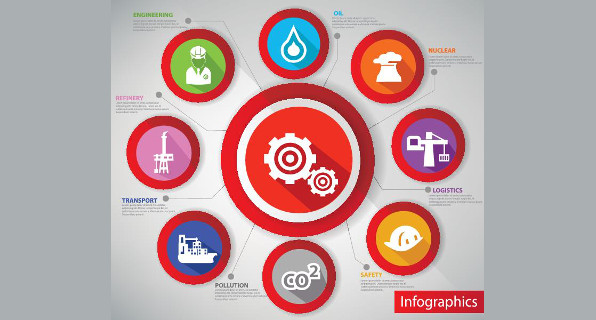3PL Providers: 7 Core Reasons to Outsource Non-Core Functions, Like Transportation Management to One
In today’s up and down economy every shipper is looking to find strategic advantages over their competition. The biggest hurdle for logistics and transportation managers continues to be, how I get my product to my customer in the most cost effective,...

Today, it’s a constant battle to find the balance of the cheapest transportation provider with the one that has the best service. A lot of companies are outsourcing entire or part of their transportation department to 3PL providers, and according to the recent Inbound Logistics report, 3PL use is only on the rise.
Inbound Logistics’ annual 3PL Perspectives market research report documents these changing dynamics. While cost reduction remains the dangling carrot leading shippers to the 3PL well, that impetus has expanded considerably during the past several years. And the economy is a big factor.
“Inflation is expected to rise as the Fed changes its easy-cash policies; economic growth is projected to shrink; higher payroll taxes and rising fuel prices all impact the consumer’s appetite to spend,” explains one 3PL respondent to IL’s research survey.
3PL providers reasons to outsource what do shippers want 300x225 3PL Providers: 7 Core Reasons to Outsource Non Core Functions, Like Transportation Management to One
The Greatest Challenges Shippers Face
When you consider that freight volume directly correlates with consumer confidence and is a leading indicator of the economy progress, the impact on the supply chain is great. Beyond that, a continuing capacity shortage, rising freight rates, and stricter government regulations only exacerbate the challenges shippers face

Shippers want cushion—not just in terms of inventory, but in supply chain management execution flexibility as well. Many are hesitant to dump capital into fixed costs, whether it’s infrastructure or technology. Leveraging 3PL providers to assume that risk, and provide scalable solutions that ebb and flow with changing market conditions, can be a smart option.
But the greater transformation in today’s 3PL landscape is the changing perception of logistics service providers. When commoditized warehousing and transportation functions dictated contractual arrangements, the idea of partnership was buried in the fine print. Relationships were transactional, pragmatic, and physical. 3PLs were “third parties,” or replaceable outsiders.
That sentiment is changing, big time. As shippers rely on 3PL providers partner to provide more strategic oversight, and help catalyze business process change within the organization, the relationship is growing more fluid, and less analytical. Service providers are becoming an extension of the enterprise.
That’s the direction in which 3PL providers outsourcing is moving. As shippers lean on logistics service providers to deliver more than just meat-and-potatoes capabilities fixed on tactical cost reduction, outsourcing partnerships are evolving at pace. 3PL partnerships are turning into an enduring strategy, rather than a short-term fix.
So, with that said, it brings us to the 7 core reasons to outsource logistics functions and transportation management that are not the core focus of many shippers like manufacturing and distribution companies.
7 Core Reasons to Outsource Non-Core Transportation Management Functions to 3PL providers
1. Save Time & Money – 3PL’s have thousands of qualified carriers under contract with the ability to handle your freight. 3PL providers are able to reduce the amount of infrastructure investments in equipment, software, facilities and personnel. A single phone call to a logistics coordinator enables them to select the best value carrier for every shipment. Would it make sense to put that load into another shipping strategy, such as pool point distribution? Should we consolidate those LTL’s into a truckload? These 3PL’s are like a having non-paid employees on your staff and allow shippers to focus resources on areas where they are the expert (i.e. manufacturing, product sales).
2. No reason to buy an expensive TMS (transportation management system) – Reputable 3PL providers have invested in a TMS system or developed their own. These systems can be utilized for free when dealing with a third-party logistics provider and you will also get access to robust managed transportation services. Many companies can even run reports on your freight, analyze shipping patterns and keep scorecards on service quality. All of these factors help reduce overhead for shippers.
3. Liability- Third-party logistics providers manage carrier contracts, DOT safety ratings and insurance certificates better than most shippers. 3PL’s have a back office staff that have SOP’s in place to help the carrier vetting process, work with carriers on invoice variances through auditing services, and manage the entire freight claims process.
4. Economies of scale - 3PL providers provide large shipping discounts through economies of scale. 3PL’s are able to achieve much lower operating costs per load due to their ability to leverage their entire business for substantial discounts with trucking companies. These economies of scale can also be seen in the carrier qualification process, technology systems and consistent year-round freight prices.
5. Visibility of loads – Most third-party logistics companies have on-line tracking to give shippers visibility of their loads. Many 3PL’s are able to integrate tracking into shipper IT systems, provide integration into ERP and WMS, automated notices, or even real-time delivery notifications by e-mail.
6. Reduce back office duties- 3PL providers have the systems, manpower, and the know-how to process thousands of bills a day at a fraction of the cost compared to shippers. They can also audit all of the bills to make sure the carriers are charging the agreed upon rates. This process can be a real headache with large amount of LTL bills. Third-party logistics providers dramatically reduce the need for freight audit and payment personnel.
7. Utilize more carriers - Third-party logistics companies have contracts with thousands of carriers and know the lanes where these partner carriers need freight. If a shipper has consistent freight to multiple locations and regular lanes, an RFP (request for pricing) is initiated after analysis of freight shipment activity and analysis to further drive down costs. In combination with carrier compliance and vendor compliance accomplished through the TMS, the bottom line will look great and the c-suite will be happy with the transportation department.
So what do you see as the benefits for working with 3PL providers? Let us know your thoughts in the comments section below!


